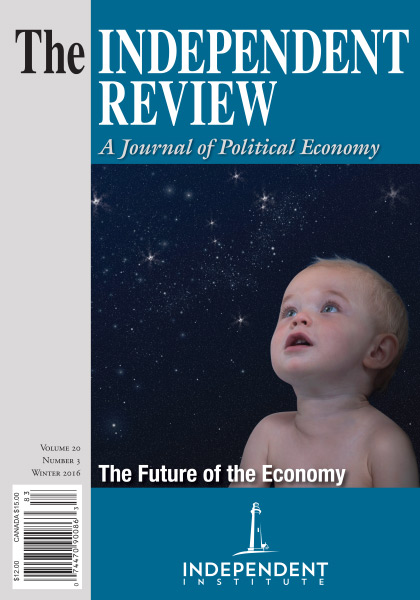By 2065, world population growth will have stopped, the number of people living in poverty will be less than half of what it is today, Americans with jobs will work 10 percent less than today, and the U.S. government’s spending will account for a larger share of GDP, despite having defaulted on its debt and scaled back Medicare and Social Security. Developing economies will grow faster than those of established countries, whose growth will be hobbled by increased taxes and regulation.
David R. Henderson is a Research Fellow at the Independent Institute, an Associate Professor of Economics at the Naval Postgraduate School, and a Research Fellow at the Hoover Institution at Stanford University.
Culture and SocietyEconomic PolicyEconomyEntitlements and WelfareFamilyFree Market EconomicsRegulation
| Other Independent Review articles by David R. Henderson | ||
| Summer 2018 | Why We Fight: A Study of U.S. Government War-Making Propaganda | |
| Fall 2016 | An Economist’s Case for a Noninterventionist Foreign Policy | |
| Spring 2015 | A Philosophical Economist’s Case against a Government-Guaranteed Basic Income | |
| [View All (8)] | ||










